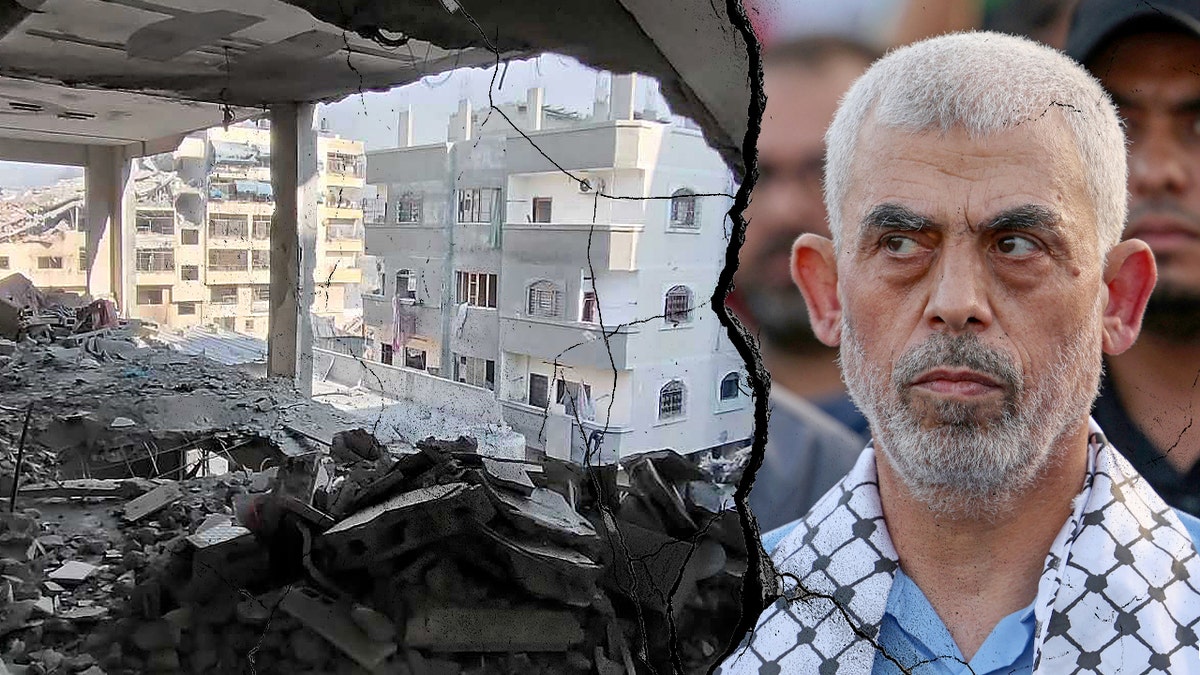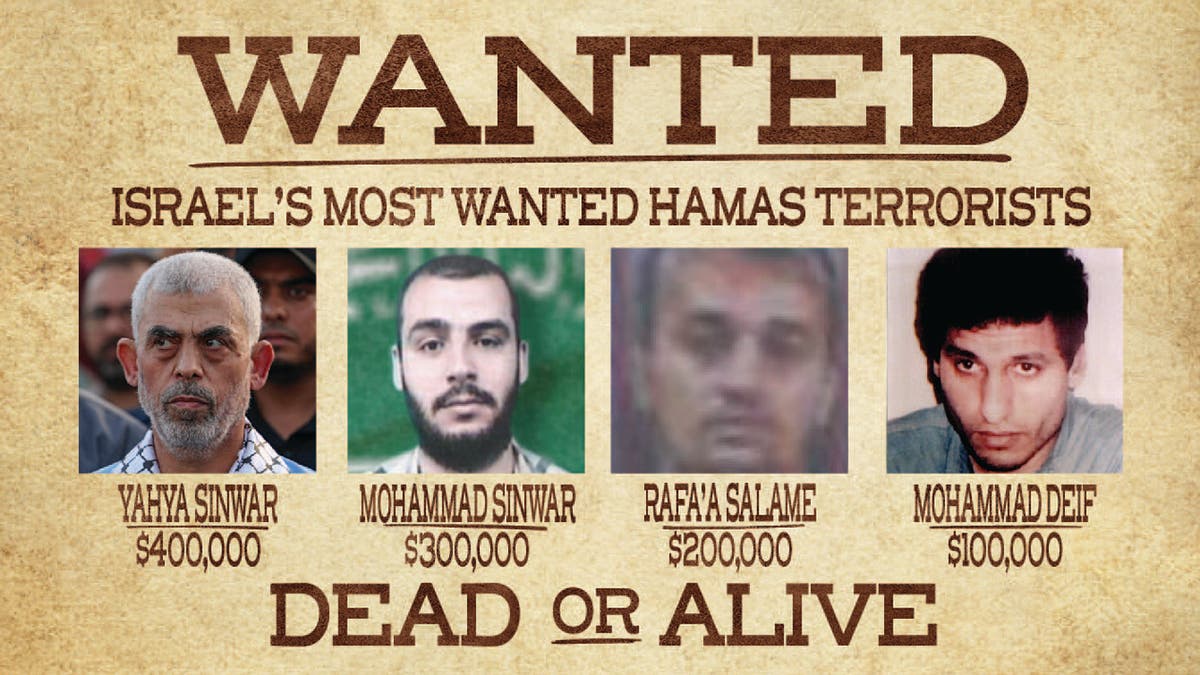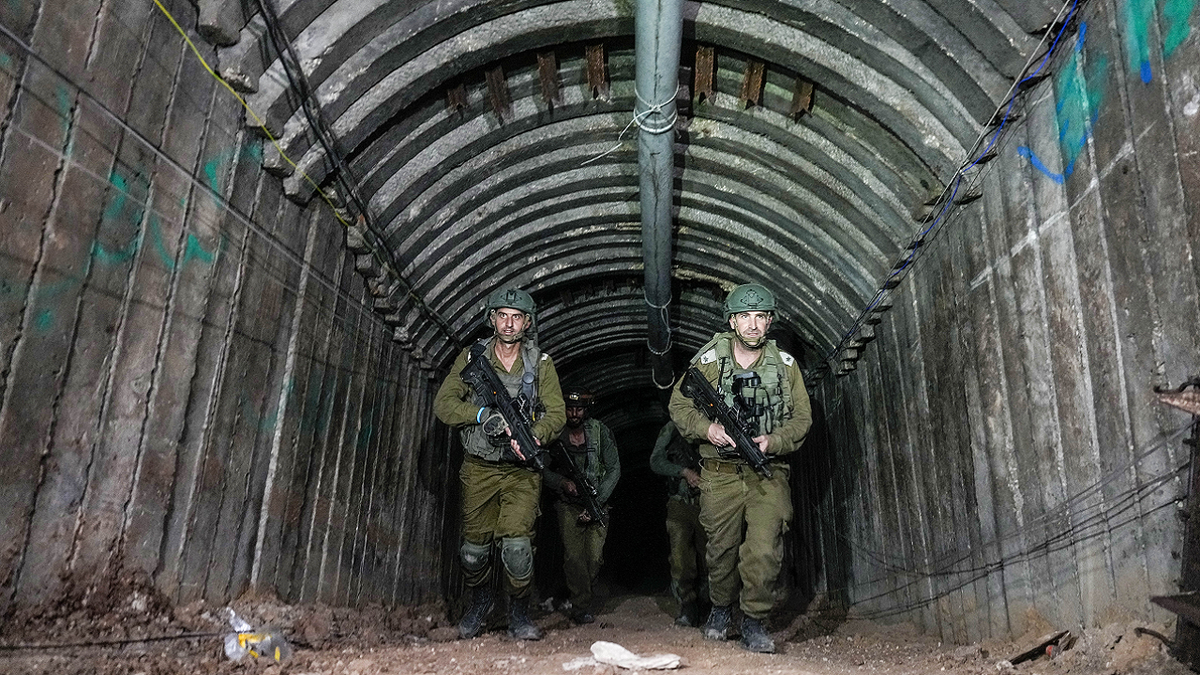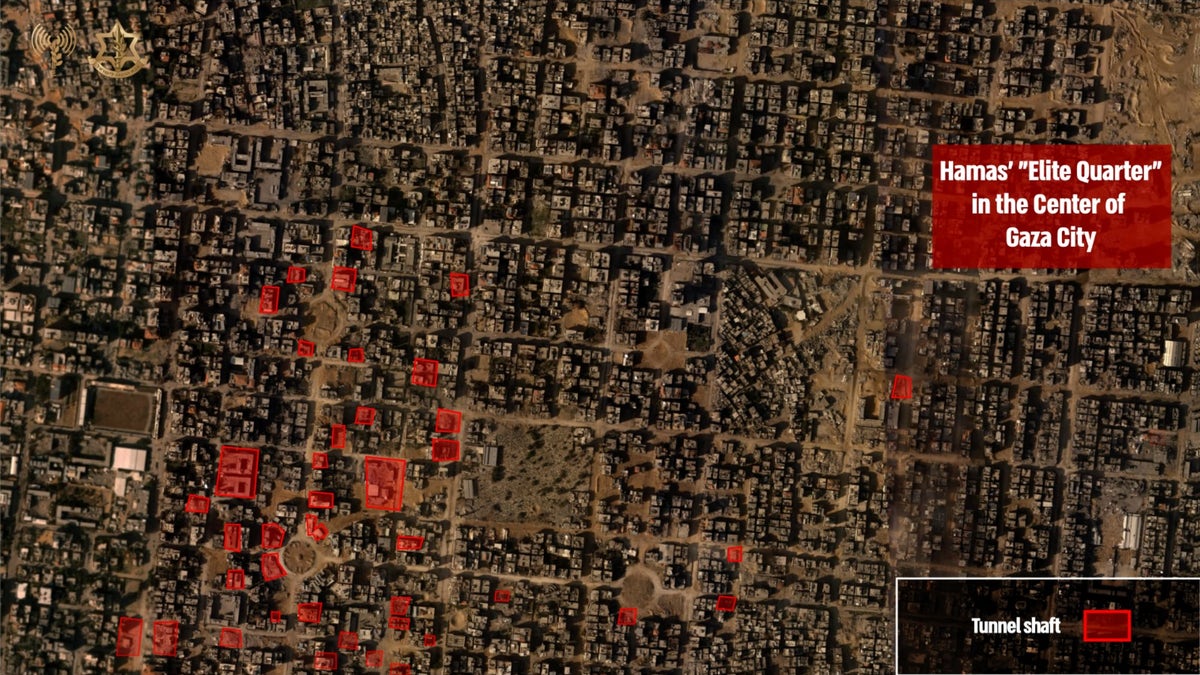Israel reveals lavish lifestyle of Hamas leaders as Gazans suffer
Fox News' Eric Shawn shared details on Hamas leaders' luxurious lifestyles of private jets, hotel suites and mansions.
JERUSALEM — It's been a busy last few weeks for Israeli troops battling Hamas terrorists in the Gaza Strip. In addition to uncovering large caches of munitions and complex tunnel networks snaking beneath hospitals, U.N. facilities and schools, soldiers have located the luxury residential complexes that until recently were home to some of Hamas’ most senior – and, apparently, most pampered – Hamas leaders.
"It’s a neighborhood of homes belonging to Hamas leaders and very wealthy people," Col. Elad Tzuri, commander of the IDF’s 7th Brigade, told Fox News Digital in a phone interview from the neighborhood in the southern Gaza city of Khan Younis, roughly 2 miles from the Mediterranean coast.
Khan Younis is the birthplace of many of Hamas' most senior commanders, including Yahya Sinwar, its top leader in the strip and the mastermind behind the Iranian-backed terror group’s brutal Oct. 7 massacre against Israel; his brother, Mohammed Sinwar, who commands Hamas’ southern brigade; Mohammed Deif, head of the terror group’s military wing; and Rafa’a Salameh, Hamas Commander of Khan Younis Battalion.
Recently, the IDF put a collective $1 million bounty on the heads of the four men, declaring them its most wanted.
Tzuri, who reached the southern city with his troops days after the U.S.-Qatari-Egyptian mediated cease-fire with Hamas collapsed Dec. 1, told Fox News Digital, "In every house we entered, we found evidence of combat and weapons. There was not one house without RPGs, Kalashnikovs, rockets and entrances to tunnels."
The commander described the neighborhood, which also included vacation homes of other Hamas leaders, as "fancy."
"The leaders lived here in very nice homes," he said. "In the neighborhood where I am right now, we found the home of Gaza’s deputy prime minister. It’s a big and fancy house. …. They lived a fancy life here and were not ashamed of their wealth."

Sinwar's blown up mansion in Gaza. (TPS (mansion) and Getty Images (Sinwar.))
Israeli media footage of journalists embedded with IDF troops this week showed that most of the neighborhood is now reduced to rubble, with deep craters caused by Israeli airstrikes. Tzuri told Fox News Digital there were tunnel shafts in nearly every location.
"It looks like all of Hamas’ money goes either to their leaders or to terror," he said.
Michael Nahum, chief operating officer of the Center for Peace Communications, a D.C.-based think tank, told Fox News Digital, "The more lavish homes in Khan Younis belonged to Hamas stalwarts and their families, many of whom are originally from there.
"The corruption of Hamas’ leadership class has been an open secret for years."
ISRAEL'S HUNT FOR HAMAS TERROR GROUP LEADER YAHYA SINWAR: ‘DEAD MAN WALKING’
He said Moaz Haniyeh, son of Hamas political bureau chairman Isma’il Haniyeh, even had a nickname of Abu al-Aqarat — Father of Properties — for his extensive real estate holdings in Gaza made possible by his father’s influence. Haniyeh, who lives in Qatar, is said to be worth billions.
According to Nahum, Hamas leaders began building their power — and their wealth — almost as soon as they seized power over the Palestinian enclave in 2007, forcing out members of the rival Fatah political party in a violent coup.

Israel recently released flyers in Gaza calling for help to find four of its most wanted terrorists. Rewards were offered for information. (Julia Bonavita/Fox News Digital )
Facing isolation as a U.S. and Israel-designated terror organization, Hamas began building a network of smuggling tunnels under its southern border with Egypt. By 2012, Nahum said, the group was transferring half a billion dollars in goods annually and exacting "import duties" in excess of 14.5%.
"As one smuggler put it, the choice was to pay Hamas ‘or get shot in the legs,’" said Nahum, adding that, even with growing poverty and a dire humanitarian situation in Gaza, "Hamas imposed a range of taxes on its people to fund an opaque budget, even the purpose of which is secret."
A 2022 report by The Associated Press observed that Hamas "offers few services in exchange [for these taxes], and most aid and relief projects are covered by the international community."
In a recent interview, prominent Hamas leader Moussa Abu Marzouk admitted to Russia Today’s Arabic channel that the group, which effectively governs the Strip, was not responsible for civilians.
HAMAS BILLIONAIRES: LIFESTYLES OF THE RICH AND TERRORISTS

Israeli soldiers Dec. 15 in a tunnel the military says Hamas terrorists used to attack the Erez crossing in the northern Gaza Strip. (AP/Ariel Schalit)
"Everybody knows that 75% of the people in the Gaza Strip are refugees," he said. "It is the responsibility of the United Nations to protect them and, according to the Geneva Convention, it is the responsibility of the occupation [Israel] to provide them with all the services as long as they are living under occupation."
"The paradox of Hamas leaders living lavish lives, while their people starve, is nothing new for Palestinians and the broader Arab world," Khaled Hassan, a political risk and intelligence analyst with over 13 years of experience working in the Middle East, told Fox News Digital.
"In a region of paradoxes, Hamas built tunnels into Sinai and carried out attacks in collaboration with Sinai-based terrorists."
The U.K.-based Hassan's areas of research include digital threats, the Palestinian-Israeli conflict and disinformation, propaganda, radicalization and terrorism in the Arabic-speaking world.

Aerial photo of Hamas' "Elite Quarter" in the Center of Gaza City (IDF Spokesman's Unit)
"They targeted Egypt’s military, police and civilians, but nevertheless demanded that the Egyptian government not flood their smuggling tunnels. They also built luxurious vacation homes and demanded of their people to live on scraps," he said.
"Their leaders and middle-rank militants run a Mafia-like style of governance," Hassan added. "They force Palestinian women to marry their rapists, regularly seize property and businesses by force, as well as attack, mutilate and murder their Palestinian political opponents. Yet, they want you to believe that they hold the moral high ground.
"By eradicating Hamas, Israel is paving the path for a safer, more prosperous Middle East."

IDF troops uncovered some $1.5 million dollars in Israeli shekels inside the home of a senior Hamas terror leader. (IDF spokesman's init.)
Throughout the past few weeks, the IDF has shared documentation and footage of its discoveries in Khan Younis and other locations throughout Gaza. In one home, belonging to a senior Hamas commander, soldiers found suitcases stuffed with the shekel equivalent of about $1.5 million in cash. In a hospital in northern Gaza, they found weapons concealed in NICU incubators. In yet another location, they found dolls wired with speakers cynically aimed at confusing and ambushing soldiers.
However, the biggest revelation in recent days has been the maze of tunnels snaking beneath major urban areas, equipped with elevators, electricity, ventilation and heavy iron blast doors. The tunnels, especially those located in central Gaza City, below Hamas’ headquarters, were found stocked with food, water and other products that would allow for prolonged stays below the ground.

Property of Ismail Haniyeh in the Gaza Strip (IDF spokesman's unit)
CLICK HERE TO GET THE FOX NEWS APP
The army also said it had found evidence the tunnel network was used by senior Hamas officials, including Haniyeh, Sinwar and Deif. In one video taken from Hamas’ own archives, Mohammed Sinwar is seen driving a car through an underground cavern.
As more of Hamas’ terror infrastructure is revealed, experts are estimating that billions of dollars were used by the group to procure weapons, including rockets still being fired daily against major population centers in Israel, and build the elaborate subterranean system, where Hamas leaders are still hiding 2½ months into a war that has claimed the lives of thousands of Gazans.








































